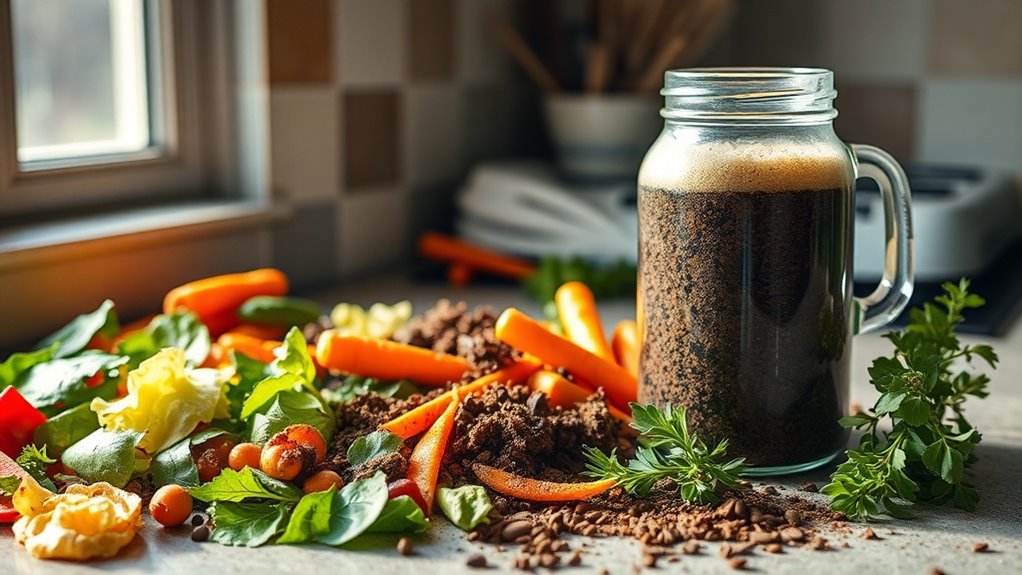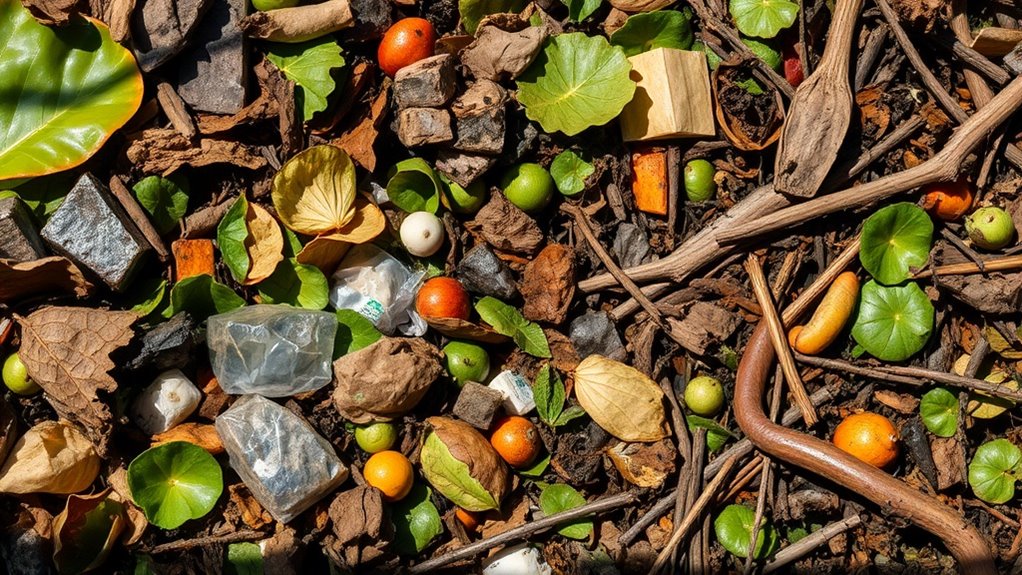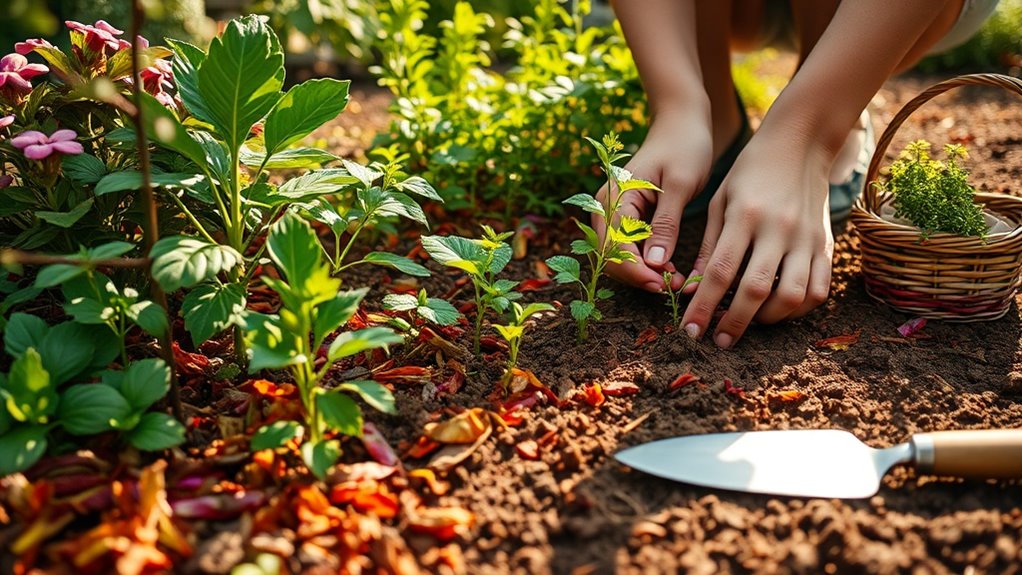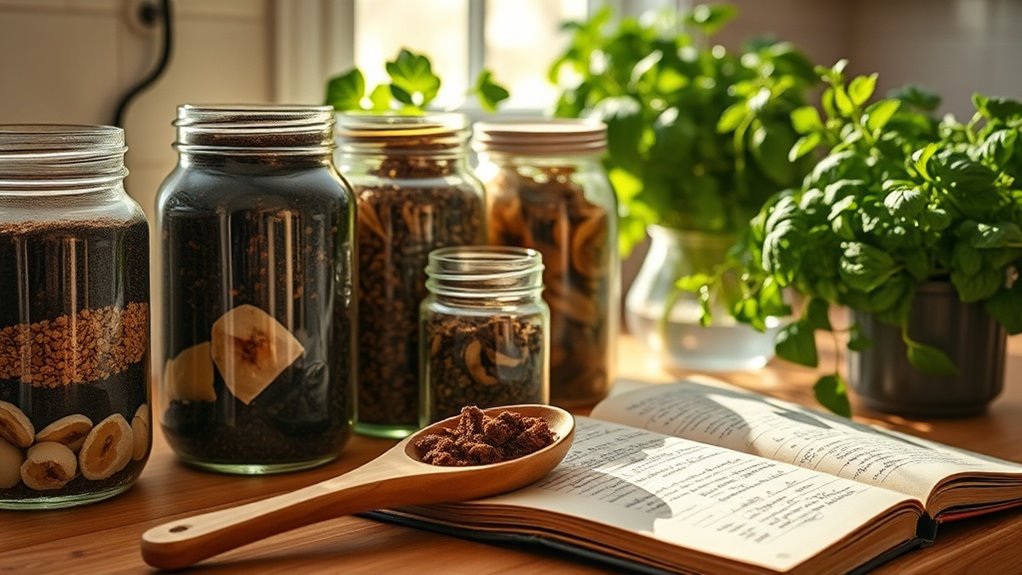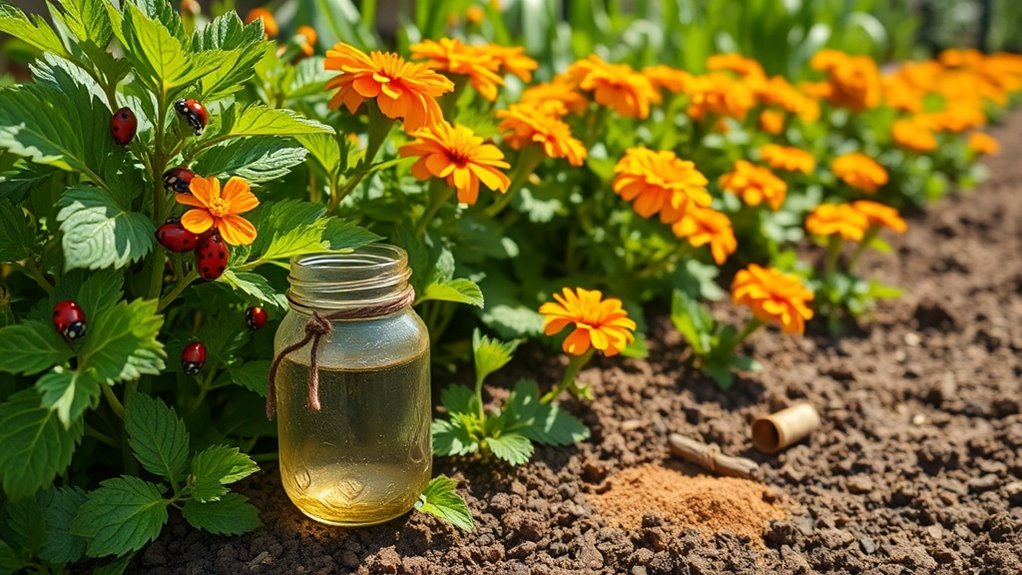How to Turn Kitchen Waste Into Plant Food
It’s a coincidence that the scraps you toss away can actually transform into something beneficial for your garden. When you learn how to convert kitchen waste into plant food, you not only reduce trash but also enrich your soil. It’s a simple yet effective process that yields impressive results over time. Curious about how to get started? There are a few essential steps you won’t want to miss.
Understanding Kitchen Waste
Kitchen waste is a treasure trove of nutrients that can boost your plants’ health. By turning scraps into fertilizer, you’re recycling organic matter like fruit peels, vegetable trimmings, and coffee grounds.
These items provide essential nutrients like nitrogen and potassium, enhancing soil fertility. Additionally, incorporating homemade fertilizer into your gardening routine can lead to healthier plants and improved growth. Embrace this eco-friendly approach, and you’ll see your garden thrive while reducing waste in landfills.
Benefits of Composting
Here’s why you should start composting:
- Enriches your soil with nutrients.
- Reduces landfill waste.
- Improves soil structure and moisture retention.
- Encourages beneficial microorganisms.
Additionally, creating your own compost bin can be a fun and rewarding DIY compost bin project that turns your kitchen scraps into valuable resources for your garden.
Types of Kitchen Scraps to Use
When you’re looking to enrich your garden, consider the variety of kitchen scraps that can serve as excellent compost ingredients.
Fruit and vegetable peels, eggshells, coffee grounds, and stale bread break down easily and add nutrients. Additionally, wilted greens and leftover grains offer beneficial organic matter. Furthermore, you can also compost common household items such as cardboard and paper towels, which help contribute to a nutrient-rich compost mixture.
Simple Composting Methods
Creating compost doesn’t have to be complicated; there are several simple methods you can use right at home.
Try these:
-
Bokashi Method: Ferment scraps in a sealed bucket.
-
Wire Bin: Stack organic waste in a mesh bin.
-
Tumbler: Rotate materials in a compost tumbler.
-
Sheet Composting: Layer waste directly on garden beds.
These methods make composting easy and effective! Also, starting with easy home composting can help you avoid any unpleasant odors or mess.
Making Liquid Fertilizer From Kitchen Waste
Transforming kitchen waste into liquid fertilizer is a fantastic way to nourish your plants while reducing waste.
You can easily create this nutrient-rich solution by blending vegetable scraps, fruit peels, or coffee grounds with water. Let the mixture steep for a few days, then strain it.
Use the resulting liquid to water your plants, giving them a natural boost and promoting healthy growth. Adding homemade garden feed will ensure your plants receive essential nutrients, enhancing their overall vigor. Enjoy your garden!
Tips for Successful Composting
Three key tips can help you achieve successful composting and make the most of your kitchen waste.
-
Balance green (nitrogen) and brown (carbon) materials.
-
Keep the compost pile moist, but not soggy.
-
Turn your compost every few weeks to aerate and speed up decomposition.
-
Monitor temperatures; a hot pile breaks down faster.
By incorporating fast composting techniques, you can further enhance your composting process and produce nutrient-rich compost in just two weeks! Follow these tips, and you’ll have nutrient-rich compost in no time!

